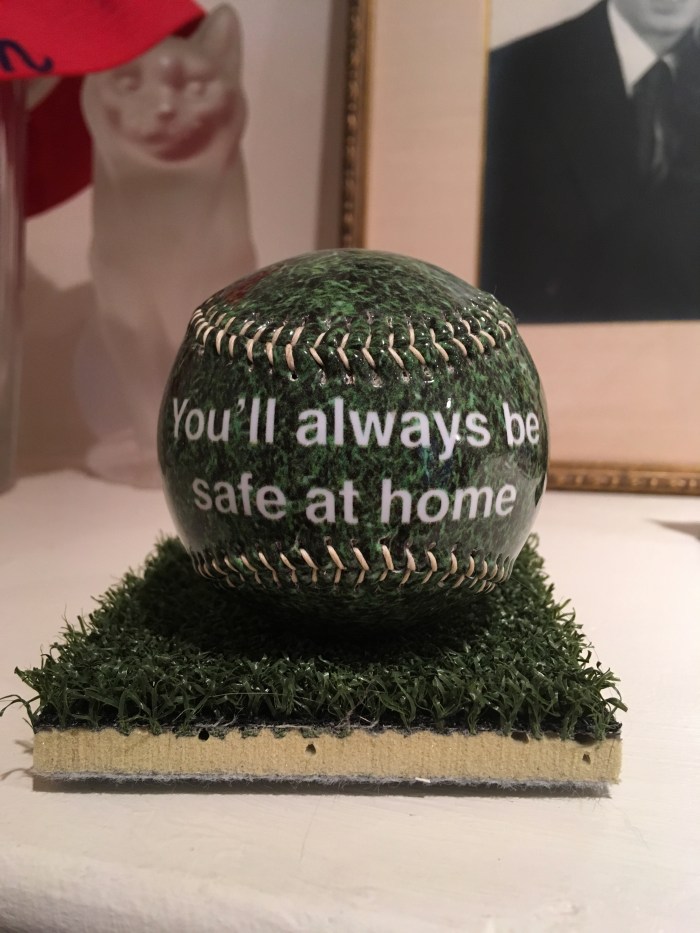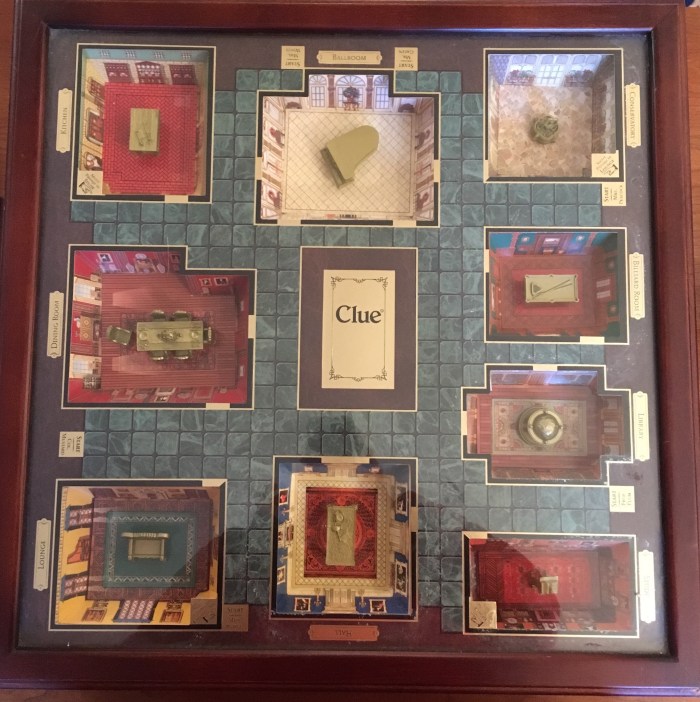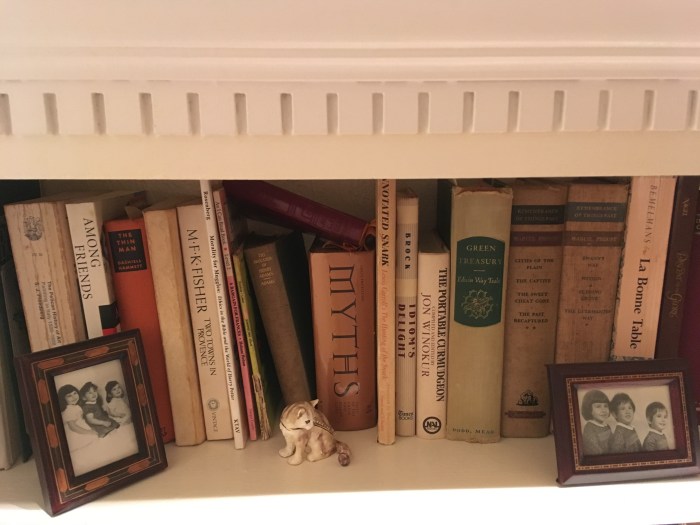 I’m pleased to share this essay, just published in LITERARY MAMA
I’m pleased to share this essay, just published in LITERARY MAMA
***
Even though there isn’t a shred of Nordic ancestry in my DNA, this past year I utterly embraced the idea of Jolabokaflod, the Icelandic tradition of giving books in the yuletide season. The fact that I am Jewish and do not even celebrate Christmas was utterly irrelevant. This was not simply an efficient solution to holiday gift giving. For weeks I agonized about my choices, eventually settling on titles as diverse as Alexandra Horowitz’s incisive On Looking (for my niece) to Annie Dillard’s luminous Pilgrim at Tinker Creek (for two of my sons). For me the rules of Jolabokaflod giving were straightforward but rigorous: I had to have read the book I was giving, and I had to do my utmost to match the book to the recipient. There was nothing haphazard about my choices. In other words, I was matching the books I loved to the people I loved.
For me I realized, Jolabokaflod was an extension of a language I had been speaking with both passion and conviction my whole life. Jolabokaflod is about speaking book.
Absurdly, although we live in the age of split-second communications, actually communicating—that is, making our deepest feelings known and understood—is still one of the most daunting and seemingly insurmountable tasks each of us faces throughout our lives. Many of us are simply too short on time, or too shy, or too tongue-tied to reach out to each other. In a sense then, speaking book, the act of giving books or suggesting books to those we care for, is something of a compressed, but explosively powerful, shorthand for connection. Speaking book bridges spaces between people. It can be an act of courage to suggest or give a beloved book, the fragile offer of a peek into one’s own interior life. Sharing books is also a way of sending people to a place you cannot necessarily go yourself, with faith in their ability to get there. Sometimes giving a book is a badge of honor, showing pride in what someone aspires to be, occasionally before they even know those aspirations themselves.
I became fluent in speaking book because, although I didn’t realize it at the time, book was spoken to me from the very beginning. Neither of my parents are obvious and obsessive readers. In retrospect, how could they have been? My father, one of the finest optometrists in the state of Michigan, worked incredibly long hours, including weekends. My mother was home with my two sisters and me, assorted dogs, Sisyphean mountains of laundry, constant cooking, and the continuous stream of ever-present anxieties and miniseries-worthy dramas. Her at-home workdays were bereft of bookends—in other words, never-ending.
And yet, my mother made sure my sisters and I were wielding library cards with the slashing exuberance of Zorro as soon as we could scratch out our signatures with those big red jumbo pencils. But this wasn’t enough. My parents were adamant that there would be books—real, honest-to-goodness, important books—in our own home. With metronomic regularity, Book of the Month Club began depositing everything from Plato’s Republic to The Sun Also Rises on our doorstep, ponderous, slipcovered volumes that bricked themselves stolidly into the shelves with the immobile and straight-backed sobriety of the Queen’s Guard. While these were showplace books, meant for adornment, their very presence in our house meant that books mattered.
But if the Book of the Month Club books were impressively untouchable, the World Book Encyclopedias were invitingly grabbable. Pulling volumes out at random, boldly riffling the pages like a Vegas blackjack dealer, I would lie by the radiator sinking down into the words and burying myself in a sparkling melange of weirdly disparate ideas. How wrenching that Beethoven was completely deaf and couldn’t even hear his ninth symphony performed, nor listen to the rapturous applause! If the Egyptians mummified their pets, it meant that they adored them, right? How on earth did Nellie Bly pack her tiny handbag for an 80-day trip around the world? My parents never kept track of what I was reading. No one ever quizzed me on what I’d learned or what I knew. My parents just made sure the World Books were there and that I was left alone to read them whenever and however I liked. Speaking book in this case sent the very clear message that not only was the world—via the World Book—at my fingertips, but I was in control. Ideas gamboled and fizzed together in my head like bubbles in a flute of champagne. Books and I had a conversation, a friendship, a relationship. And that relationship was a fine and private thing.
Or, at any rate, mostly private. Each Sunday morning with hardly a word or a sound my mother and I would slip out of the house together. We’d slide into the cavernous Delta 88 and glide down the tree-lined streets with the majesty of the QE2. Above us a cathedral of elms linked their arms together in verdant welcome, arching over the car, the light tipping tenderly in and out of the shadows, Sainte-Chapelle itself on the streets of suburban Detroit.
I thought the plan was always to be the first customers to get the bagels while they were hot enough to steam up the glass bins or to fuss about whether we’d get the round flaky onion rolls or the square New Yorkers. That was part of it. But always my mother dug to the bottom of her purse, came up with a handful of quarters, and then let me pick out a crisp and thick copy of the Sunday New York Times from the middle of the pile. Later, she’d silently note which books I’d notched in the “Book Review” section. And somehow, without my saying a word, I’d find copies of whatever books I’d been dreaming about waiting for me on the edge of my bed. She knew.
I think my mother spoke book to me because she couldn’t bear it otherwise. I thought she didn’t know that I never had anyone to sit with at lunch. I thought she didn’t know that I never had anyone to play with at recess, that every day I endlessly circled the perimeter of the playground tensely waiting for it all to be over. I couldn’t seem to talk about whatever everyone else was talking about nor did I care about what everyone else cared about. I was the way I was, small and plump and bookish, hunched with a nearsighted squint that often looked like a grimace.
Once, feathered-haired and blue eye-shadowed at Matthew Fuller’s backyard Bar Mitzvah party, I bravely shuffled through the grass in overlarge high heels to a tight group of chattering girls. I hovered on the edges for a moment, straining to catch the rhythm of their high pitched chirping. But then almost as one they noticed me. Almost as one they looked me up and down. No one smiled. Then with a synchronous click of their tongues, they turned and streamed away from me, wrinkling their noses as if I were a glass of curdled milk. My mother, also a guest at the party, watched helpless from the window. She never said a word. But later she gave me the longed for Life Goes to the Movies. My mother couldn’t live in my shoes, she couldn’t fight my battles. But she could give me books to soothe me, books to provide escape routes. And she did.
In this way then, the densely packed floor of my room, the desk, the chair, the bed, became a topographic map of the world, with veritable mountains of books stacked as high as I could reach, the piles teetering with the elegant precision of a Calder stabile. Slender, barely passable walking paths twisted from bed to door. I needed to have the books as close to me as possible for comfort. It was as if each title were an opportunity to lay claim to the world itself; I was Magellan of the suburbs, Vasco da Gama of junior high. I too was an explorer, albeit of ideas. Harriet the Spy taught me independence; From the Mixed Up Files of Mrs. Basil E. Frankweiler gave me a sense of adventure; The Wind in the Willows led me down a well of unending wonder. Every book my mother shared with me was a pathway, a safety net, a balm. My mother, her own childhood books wrested from her for younger relatives, possessively embraced the piles of art books stashed in her downstairs studio in exactly the same way.
Soon, I took a summer job at iBrowse Books, a place I loved so much that I’d routinely show up early and only grudgingly pull myself away to go home at night. I spoke book with agonizing abandon here. I wanted desperately to match exactly the right book to the right person at the right time. Every time. Somehow I thought if I could get each person the book they needed, it would save them. Their lives would be different, better. As for me, with my discount I took home everything from Anaïs Nin to Norman Rockwell, but I rarely took home a full paycheck.
By the time I was in college I’d managed to bend my art history honors thesis to speaking book as well, solemnly focusing on the Philipp Otto Runge-obsessed author/illustrator Maurice Sendak. There was an overall plan here: to catapult myself from the Midwest to Manhattan and into the world of book publishing. My parents were frightened for me, particularly my stoic and laconic father. He silently handed me a copy of James Stevenson’s I Meant to Tell You.
I wanted to go into book publishing to enter a world where I was sure everyone spoke the same language I did. In actuality, the coffee was sludgy, the pay was abysmal, we Xeroxed for hours on end. But I was there to see the aged and frail Alfred A. Knopf, still elegantly mustachioed, reverentially escorted to his corner office one last time. I was welcomed, as all new Random House hires were, by Donald Klopfer, who told us how he and Bennett Cerf stressed the equality of their partnership and always worked with their desks pushed together. And as I had dreamed, there was no Tower of Babel in book publishing. Everyone just fervently, passionately spoke book. For all of us bibliophagists, book wasn’t just a language, but actual currency as we bartered for what we wanted from the different publishing houses.
About this time I found myself utterly captivated by a tall, handsomely bespeckled and sleekly suited attorney who’d been my seat partner at a haphazard tossed salad of a dinner party. Although his attention was clearly diverted to the blond on my right, I doggedly refused to concede defeat. When I overheard him mention that he was about to depart for a trip to London and Paris, I knew there was no time to waste. The next day I messengered him a copy of Patricia Wells’s superb The Food Lover’s Guide to Paris. Thus baited, he phoned, and we made a plan to meet when he came back to New York. We returned to Paris on our honeymoon and have been happily married for almost thirty years. I could tell from the beginning: he spoke book.
Of course, book was the first language our children ever heard. I read to them as they stared wide-eyed at me, papoosed into their blankets; I read to them as they scooted across the floor; I read to them as they spun crazily around and around in their identical spinny disks. They listened to me read Shakespeare and James Howe, Agatha Christie and Jack Prelutsky, A. A. Milne and M. F. K. Fisher. They used books for building blocks and chose books from the shelves to cuddle for comfort. When they became enthralled by the moon outside our window, I plucked The Grand Tour: A Traveler’s Guide to the Solar System from the shelves and put it in their arms. The funny thing is, when I think back on it, none of my boys ever really learned to read. They just read early and always, joyfully and perfectly from the very beginning. Books were their true language. Everything I couldn’t quite say, everything I felt, was compressed between the words of the books we shared.
As their love of the world and of science grew, they gathered the DK pocket books—Sharks to Skeletons, Aircraft to Volcanos, Insects to Fossils—swapping them, caressing them, brandishing them proudly. Finally they insisted on carrying their beloved books to the playground at preschool, certain that everyone else spoke book too. They were wrong about that of course. From the parking lot I watched them scurry with their books to the land of swings and slides and monkey bars. No one stopped. No one came over. My boys stood alone and confused, clutching their precious books in their hands.
What had I done?
I had done the best I could, speaking the language I was most comfortable speaking, a language they seemed to understand intuitively. Had I done them a terrible disservice, though?
I don’t think so. With each book I shared with them over the years, each time we said yes to a book they craved, it was an affirmation of their choice, their aspirations, their sense of self. Speaking book was validating their ability to add to the conversation of the world. Each book was a toehold on their way to finding their own true, comfortable place. I had to believe that for them, as for me, books would be the path that would some day bring them to the places they were meant to be.
“Tell me, what is it you plan to do with your one wild and precious life?” the much-loved Mary Oliver asks in “The Summer Day.” After much thought, I realize with a start that I’m actually doing it. I have spoken book my whole life. All these years later, I find that I am still speaking book through Jolabokaflod. I wonder if recommending titles we adore is actually transforming authors into the Cyranos of our lives, conveying the intense emotion that is often too complex for us to express to those we care so deeply for. Through the sharing of books I have tentatively sent tendrils of connection into the world, tiny wisps of love and of thought that gather like steam from a kettle and yet do not dissipate, but are somehow grasped and savored. That’s not simply wild and precious but frankly, miraculous.
 Dearest All,
Dearest All,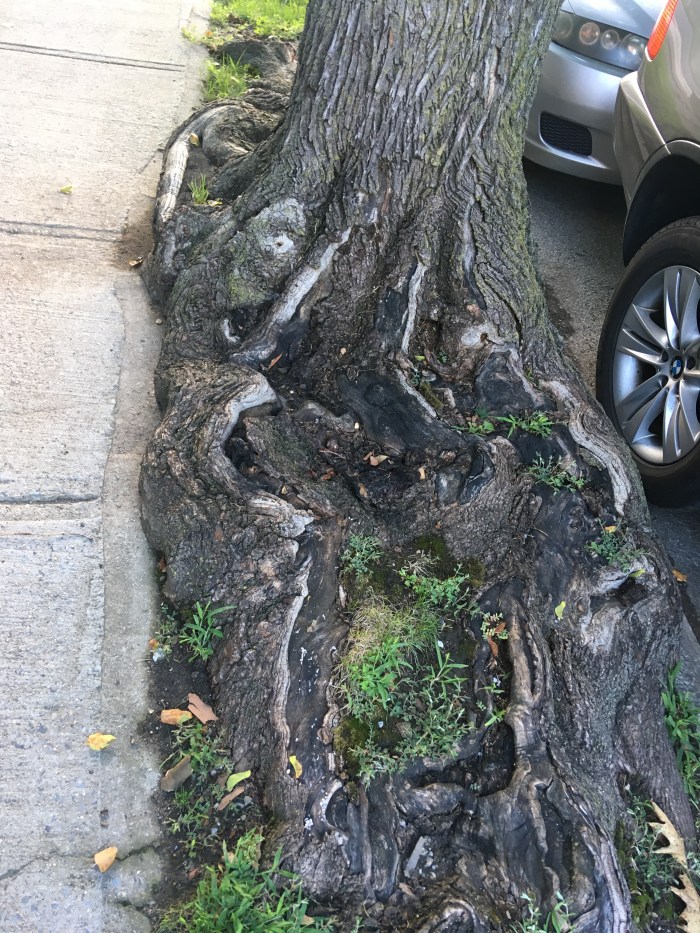
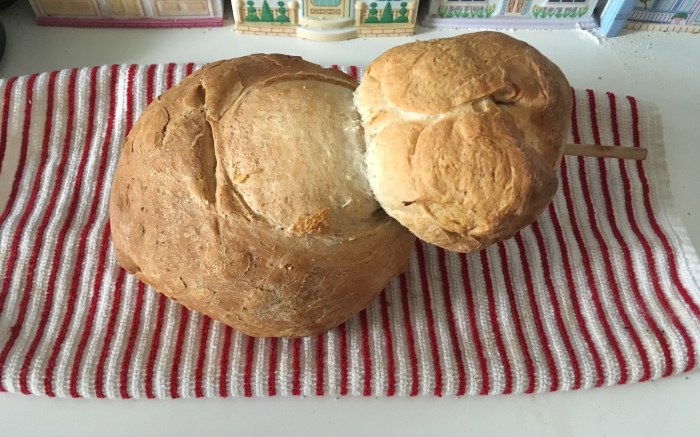 It was different this time.
It was different this time.  That’s that! I’ve had enough. And without another thought, without a look back I am on my way, shoelaces trailing, hair streaming,
That’s that! I’ve had enough. And without another thought, without a look back I am on my way, shoelaces trailing, hair streaming, I never really expected to be here. But I am so very happy to have arrived.
I never really expected to be here. But I am so very happy to have arrived. The path, from there to here, wends this way and that.
The path, from there to here, wends this way and that.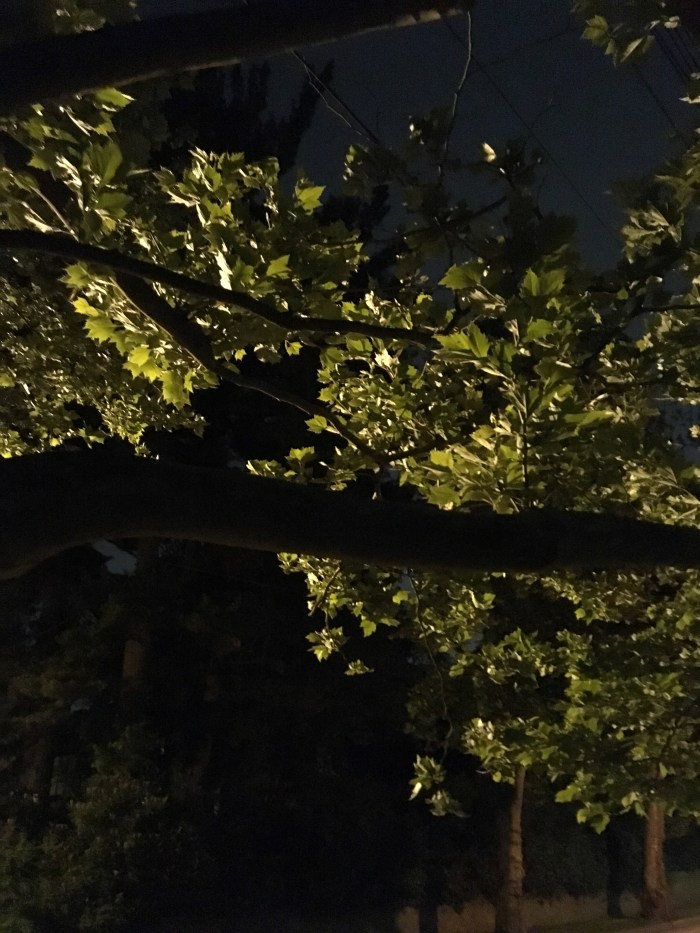 The plan, if there was such a thing, was simple. Escape.
The plan, if there was such a thing, was simple. Escape. “There is no need for a faraway fairyland for the earth is a mystery before us.”
“There is no need for a faraway fairyland for the earth is a mystery before us.”